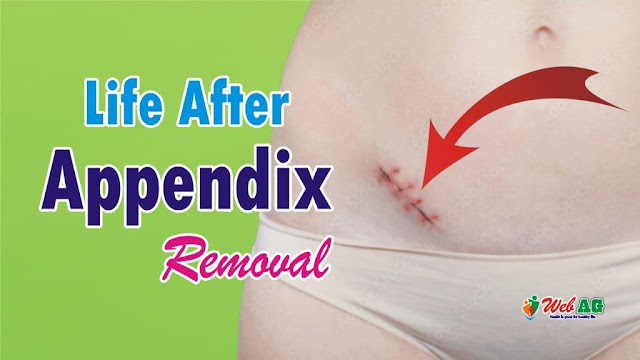Okay, Have several inquiries for you. Have you at any point lost something around your home and found it a couple of months after the fact? What about the times you couldn’t decide which shirt to wear at work, and you ended up going topless? Hehe. All joking aside, life is too short to even think about rearranging the entirety of your stuff to find what you are searching for.
As indicated by the Public Relationship of Expert Coordinators, we spend something like 1 year of our lives looking for stuff. So why do we hold on to things? The answer is simple. Not all things come with a termination date. So, we’re unsure when we should get rid of old items. But, ditching things that we no longer use can help us maximize space and improve productivity.
To help yourself declutter, you have to follow one simple rule. Chuck away anything you haven’t used in the past two years. Now, don’t go around putting everything in inboxes. That’ll create a huge mess. Instead, 30 things to throw away in the next 30 days, do one item at a time, starting with the following:

1. Unmatched socks
Everybody has a drawer with a handful of socks that lost their other half somewhere along the way. It’s as if a vortex opens up and sucks them in, one at a time. Anyway, the only reason to keep single socks is if you’re looking to get crafty and upcycle them.
2. CDs and DVDs
This will be an extreme one. Individuals put a ton of pride and exertion into making their film assortments, yet with the press of a button, you can move every one of them onto a hard drive. Ok, you don’t need to abandon all your favorites, but the second-best should move out.
3. Old knives
Every person, when starting in their first home, acquired a cheap set of steak knives. If you're one of those individuals, you know that in addition to the fact that they are dull, in the first place, they couldn't be honed. Thus, the best thing to do is to send them away.
4. Hair ties
Short hair or long hair, these little elastic devils have been in our houses long enough to deteriorate. If you have a drawer with more broken hair elastics than good ones, then you need to get rid of them. Show your hair some love. It’s better to invest in a few good-quality hairbands than having 100 of them constantly breaking.
5. Old Condiment Packets
“I’ve run out of condiment packets,” said nobody. Here’s the thing, takeout places usually give you twice the amount of packets you need for your meal. Yet you keep them just in case. Well, that case never arrives, and they expire. So, save yourself the struggle and chuck them.
6. Expired spices
Ok, we all know that we need to toss out milk when it gets sour, but spices are a different story. We hold on to our spices in case we need to give our dishes some extra flavor. But, we keep them way too long. You see, spices won’t expire in the sense of making you ill, but they’ll lose flavor. And when turmeric begins to taste like dust, it’s time to throw it out.
7. Rusty Razors
What a great stage name! This is an important one. Razors that are kept in a moist environment tend to get rusty twice as fast. Shaving with rusty razors can cause burns and skin infections. When they’re kept in the shower, bacteria grow on them, so their blades should be replaced more frequently.
8. Sheets
When sheets are washed too many times, they become –shall we say -- translucent. Plus, it’s uncomfortable to sleep on them. The only reason to keep them around is if you plan to turn them into clean clothes.
9. Plastic Bags
Don’t get me wrong, all of us hoard them because we know that we shouldn’t throw them out. But there are places you can take your plastic bags and recycle them, putting an end to the ever-growing mass.
10. Containers without lids
Here is another mystery, lidless food containers. How do those lids vanish? Maybe they paired up with the missing socks in the vortex. Until we find out, you can recycle the single ones.
11. Expensive skincare
This is a wake-up call for people who buy expensive moisturizers and store them because they don’t want to use them…too quickly. Well, skincare products that are rarely used are a great source of bacterial growth. So, it’s safer for your skin if you get rid of them.
12. Dead Batteries
Imagine your TV remote has run out of batteries, what do you do? Shuffle through your junk drawer to find one, only to discover none of them work. Don’t get me wrong, we all hoard batteries just in case one of them re-charges itself. But they never do. Save yourself the hassle and throw them out – in the proper way, of course.
13. Outdated magazines and newspapers
When your paper collection keeps growing, you’re less likely to pick one up and re-read it. After all, you acquired all the information you needed. So, unless there’s something special in one of the newspapers or magazines you keep, toss them already!
14. Office supplies
Things like colored pens and little notepads make us feel more organized. But, thanks to technology, even Post-it notes are now digitized. Granted, you need the supplies you use regularly. But the ones that were sitting in your drawer can be donated.
15. Excess coffee mugs
It begins with the phrase “Oh, that’s a nice mug”, and it ends with an ever-increasing collection. You should see mine! The truth is, most of us have a few favorite coffee mugs. The rest of them sit in a cupboard collecting dust.
16. Old Phones
Let’s face it, you upgraded your phone years ago and your old ones sit in your junk drawer keeping the empty batteries company. It’s time to say goodbye. You can recycle your phone and get some cash back as well.
17. Travel Toiletries
There are better ways to remember your adventurous vacation than holding on to tiny shampoo and soap bottles from the hotel you stayed in. They’re just sitting in a bathroom cupboard taking up all your space. If they’re over 2 years old, folks, it’s time to toss them.
18. Empty notebooks and journals
Ok, if you haven’t picked up the habit of writing every day in your journal, then it’s time to pass it along. It’s better to gift it to someone who can get good use out of it.
19. Power Cords
Unless you’re an electrician or an engineer who can get inventive with their old power cords, there’s no reason to keep them. Older power cords don’t usually match new appliances, so holding on to them is pointless, kinda of like my old pencil.
20. Calendars
There are two main reasons people hold on to last year’s calendar. To transfer old dates, or recall their old schedule. It’s the end of the summer! if you haven’t transferred the dates or looked at your old calendar in months, then it’s time to recycle it.
21. Receipts
Don’t get me wrong, some receipts should be kept for warranty purposes or tax deductibles. But they should be filed accordingly. If you still have the receipt from the take-out place where you ate lunch a week ago, then you know what to do.
22. Clothes that no longer fit you
Whether you lost weight or gained weight, clothes that go more than two sizes in either direction should move out of your closet. Even when you manage to fit into those clothes, they’ll already be out of fashion. Not having to shuffle through all the unwanted clothes will save you a ton of time in the mornings.
23. Old prescriptions and Supplements
We hold on to old prescription medication in case we get ill again and self-diagnose ourselves with Google. This is a huge mistake! Many things can go wrong with old prescription medication, so it’s better to get rid of them. The same principle applies to supplements. The good thing is that they come with an expiration date. So, while chucking away old prescriptions, do the same with supplements.
24. Take out menus
Take-out menus are like emergency service phone numbers. You need to know they’re there. But with all the take-out places having their menus online, there’s no reason to keep them. Plus, most restaurants keep adding new things to their menus. So, the ones you have in your kitchen drawers are probably missing some tasty new dishes.
25. Greeting Cards
Ok, this is a tough one. Keeping cards from people who’ve passed away is a given, as well as cards from people you adore. However, the 5-year-old birthday card given to you by an individual you barely address ought to be reused.
26. Loofah
On the off chance that your loofah is over a month old, it ought to be supplanted. Over the natural course of time, they get dirtier. Loofahs have a lot of porous nooks and crannies. When you exfoliate, these crannies get filled with dead skin cells, and then bacteria begin to multiply. Some loofahs can be washed, but the natural ones should be chucked away.
27. Cardboard boxes
Holding on to the box of big-ticket items such as a computer or a TV is normal. Besides, you need them in case you move or sell them. However, cardboard boxes that you used ages ago should get recycled.
28. Damaged Dinnerware
A chip on a coffee mug or a dinner plate doesn’t seem problematic. But over time, the chip gets filled with food and water, making it a great source of bacterial growth. So, don’t hesitate to get rid of them.
29. Appliances
Whether it’s a keyboard waffle maker or a normal toaster that you’ve used once, don’t hold on to it. Some appliances are more trouble to use than not. So, you can make someone else happy by donating it.
30. Old Towels
If your bathroom towels begin to feel like cardboard boxes, this is a sign that they’ve reached their lifespan. You can repurpose them into a bathroom rug, or you can donate them to an animal shelter and get yourself new ones.




.png)





















